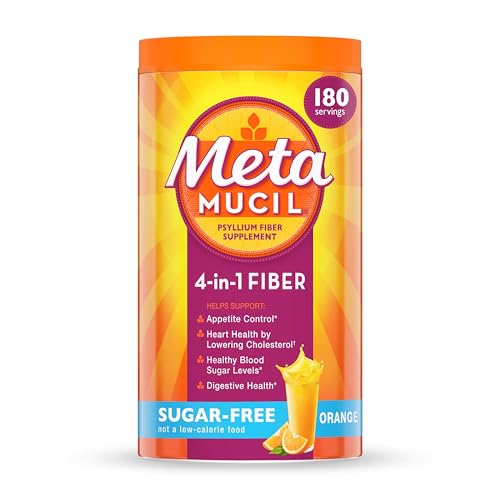Over-the-counter (OTC) medications have become a lifeline for many individuals grappling with the often unpredictable and disruptive symptoms of Irritable Bowel Syndrome (IBS).
If you’ve ever found yourself in the pharmacy aisle, overwhelmed by the myriad of options, you’re not alone. The search for the right OTC medication that can effectively alleviate IBS symptoms is a common pursuit for many.
In this comprehensive guide, we’ll explore OTC medications for IBS and what works best for different symptom types, the active ingredients that drive their effectiveness, and the clinical evidence supporting their use.
We’ll also offer guidance on how to choose the right OTC medication based on individual symptoms and triggers, as well as the precautions and considerations you should be aware of to improve your quality of life.
We’ll provide a detailed understanding of how these medications work to alleviate IBS symptoms, as well as explore alternative treatment options that can complement OTC medications in a holistic approach to IBS management.
By the end of this guide, you’ll have a clearer understanding of what to look for in OTC medications for IBS, and how to make informed decisions that best suit your unique needs.
So, let’s get started because the right relief may just be a pharmacy visit away.

OTC Medicine for IBS Key Takeaways
- OTC medications can be effective for managing IBS symptoms, but it’s important to choose the right one for your specific needs. Options like fiber supplements, antidiarrheals, antispasmodics, and probiotics target different IBS symptoms.
- Understanding how each OTC medication works can help you make informed choices for your symptom management. For example, antispasmodics relax gut muscles, while fiber supplements regulate bowel movements.
- Clinical trials, like the TARGET 3 study, have shown the effectiveness of OTC medications in reducing IBS symptoms. Evidence-based medicine is crucial in guiding treatment choices.
- Always consult a healthcare professional before starting any new OTC medication to ensure it’s safe and suitable for your individual health needs.
- Precautions and considerations, such as understanding potential side effects, following dosage instructions, and monitoring long-term use, are important when using OTC medications for IBS.
- Alternative treatments like dietary supplements, acupuncture, and mindfulness techniques can complement traditional medical approaches in managing IBS.
- Proper treatment is essential in managing IBS, as its symptoms can significantly impact quality of life. Lifestyle changes, dietary modifications, and stress management techniques, in addition to OTC medications, can all play a role in managing IBS symptoms.
Over-the-Counter Medication for IBS: What Works Best?
When it comes to managing IBS symptoms, over-the-counter medications can be a game-changer. But not all OTC meds are created equal, and what works for one person may not work for another.
It’s important to remember that while OTC medications can offer relief, they don’t treat the root cause of IBS. Lifestyle changes, stress management, and a well-balanced diet are also crucial components of an effective IBS management plan.
Always consult with your healthcare provider before starting any new medication, to ensure it’s safe and suitable for your individual health needs.
Active Ingredients and Their Roles in IBS Medications
Common active ingredients in OTC medications for IBS include:
- Antispasmodics: These help relax the muscles in the gut, reducing cramping and spasms. Look for ingredients like hyoscyamine and dicyclomine.
- Fiber supplements: Soluble fiber, like psyllium, can help regulate bowel movements and reduce diarrhea in IBS-D. Insoluble fiber, like bran, can help with constipation in IBS-C.
- Loperamide: An anti-diarrheal medication that slows down bowel movements, providing relief for IBS-D.
- Peppermint oil: Known for its natural muscle relaxing properties, it can help ease abdominal pain and discomfort.
These active ingredients work in different ways to address the hallmark symptoms of IBS, such as abdominal pain, bloating, and irregular bowel movements.
For example, antispasmodics target intestinal muscle contractions leading to stomach pain, while fiber supplements aid in normalizing bowel movements by adding bulk or softening stool easier bowel function.
When selecting an OTC medication, it’s important to consider your specific symptoms and which active ingredients are best suited to address them.
For instance, if you’re dealing with frequent diarrhea, loperamide may be more beneficial, while those with constipation may find more relief and bowel movement frequency with a dietary fiber supplement.
While OTC medications can provide temporary relief, they are not a long-term solution for managing IBS. Lifestyle modifications, stress management, and dietary changes are also crucial components of an effective IBS management plan.
Always consult with a healthcare professional to ensure you’re using the right combination of treatments for your individual needs.

Clinical Trials and Effectiveness of OTC Medications for IBS
Clinical trials have been instrumental in shedding light on the effectiveness of OTC medications for managing IBS. These trials are designed to provide solid evidence on how these treatments impact IBS symptoms and overall quality of life.
One such key trial was the TARGET 3 study, which assessed the efficacy of an OTC medication, specifically designed for IBS, in reducing abdominal pain and discomfort. Results showed a significant improvement in symptoms compared to a placebo, underlining the potential of OTC options in IBS management.
It’s crucial to note that evidence-based medicine, which relies on rigorous clinical trials and scientific research, is the cornerstone of effective IBS management. This approach ensures that the treatments recommended are not just anecdotal, but are backed by solid scientific evidence.
Incorporating OTC medications into an evidence-based treatment plan can provide much-needed relief for individuals with IBS. However, it’s important to consult a healthcare professional before starting any new medication regimen, as they can offer personalized advice based on your unique health profile and needs.
By staying informed about the results of these clinical trials, individuals can make more informed choices about their IBS management of severe symptoms. This, in turn, can lead to a more proactive and effective approach to symptom management, ultimately improving quality of life for those living with IBS.
Choosing the Right OTC Medication for Individual Symptoms
When it comes to managing IBS, the one-size-fits-all approach just doesn’t cut it. Why? Because IBS symptoms are as unique as our DNA.
Some folks might primarily struggle with cramping, while others are constantly battling diarrhea or constipation. That’s why it’s crucial to choose the right OTC medication that directly targets your specific, primary symptoms and triggers.
So, how do you go about this personalized selection process? Here are some tips to guide you:
- Identify Your Predominant Symptoms: Take a moment to reflect on your most bothersome IBS symptoms. Are you primarily dealing with diarrhea, constipation, gas, bloating, or abdominal pain? Knowing this will help you narrow down your medication options.
- Understand Your Triggers: Certain foods, stress, hormonal changes, or even the time of day can act as triggers for your IBS symptoms. This knowledge can help you select OTC medications that offer targeted relief when you need it most.
- Read the Labels: Not all OTC medications are created equal. Make sure to carefully read the labels and select products that are specifically designed to address your symptoms. For example, if you’re prone to diarrhea, look for anti-diarrheal medications. For constipation, opt for laxatives containing polyethylene glycol or stool softeners.
- Consult a Healthcare Professional: While OTC medications are easily accessible, it’s important to consult with a healthcare professional, like a gastroenterologist or a primary care physician. They can provide personalized recommendations based on your medical history, current medications, and overall health.
Remember, the goal isn’t just to manage your symptoms, but to improve your overall quality of life. By taking the time to choose the right OTC medication for your individual symptoms and triggers, you’re taking a proactive step in your IBS management.
OTC Medications For Diarrhea
Finding the right medication for treating diarrhea is often a matter of urgency. Targeted medications for diarrhea will rarely help with overall symptoms of IBS, but they can certainly help the immediate problem.
- Loperamide – Commonly sold under the brand name Imodium, Loperamide is a popular OTC medication for short-term relief from diarrhea. Loperamide can have side effects such as constipation, cramps and dizziness, and should not be taken regularly without discussing with your doctor. Although it can help ease diarrhea, it will not help with other IBS symptoms like pain and bloating.
- Calcium – Calcium is a traditional choice for treating diarrhea, and it does have a constipating effect. It should only be taken in the short-term, as it is possible to take too much. Calcium carbonate isn’t widely recommended by doctors, but many IBS sufferers have found it helpful.
- Bismuth – Bismuth subsalicylate, often sold as Pepto-Bismol, is an antidiarrheal medication. A popular method for self-treatment, it does little to relieve any other symptoms of IBS.
It’s important to be careful when taking diarrhea medication and to only use it in the short term. Overuse can lead to constipation.
OTC medications for diarrhea can stop or ease diarrhea in the short term. However, they can’t help with other IBS issues, such as stomach pain.
Many OTC diarrhea medications do carry a risk of side effects. Speak to a health care professional before using.
OTC Medications For Constipation
Living with constipation is uncomfortable, and often incredibly painful. Many sufferers find that fast treatment is necessary for improving quality of life.
OTC medications can offer relief from constipation, but they’re best used as only a part of a treatment plan, which may also include increased fluid intake and regular exercise. However, some may find that the right medication is able to solve the specific issue completely.
OTC medications for constipation include:
- Magnesium – Naturally found in foods we eat, and few suffer from a magnesium deficiency. However, IBS can lower magnesium levels, sometimes leading to constipation. Magnesium supplements can improve bowel movement by increasing the amount of water in the intestine. In too high a dose, it may cause diarrhea.
- Flaxseed – Less an OTC medicine, and more of a natural remedy for IBS, flaxseed has become a popular way of relieving constipation. It’s a soluble fiber, which dissolves in water and softens stools, so they’re easier to pass. Research has shown that flaxseed can be used effectively to treat constipation.
- Fiber supplements – Many fiber supplements are on the market. They can be pills, powders, or gummies. People should aim to get 25-30 grams of fiber per day through diet. If you’re having trouble doing this, a fiber supplement may help.
- Miralax – This is an osmotic laxative that helps to pull more fluid into the intestine. This helps increase the speed at which stool moves through the bowel and softens the stool.
- Colace – This is a stool softener. It can help soften the consistency of stool, making it easier to pass.
- Dulcolax – This is a stimulant laxative. It increases contractions of the bowel and helps with motility.
- Suppositories and enemas – These medications are inserted into the rectum. They can help increase fluid content of the stool and stimulate the urge to have a bowel movement.
As with diarrhea medications, these are best used in the short-term. Discuss with your doctor if more long term use is needed.
Understanding How OTC Medication Alleviates IBS Symptoms
OTC medications can be a lifeline for those managing IBS symptoms. But how do these drugs actually work to alleviate the discomfort and pain associated with IBS? Let’s take a closer look at the mechanisms behind some popular OTC options.
- Antispasmodics: These medications work by relaxing the muscles in the gut and digestive tract, reducing cramping and spasms that can lead to pain and discomfort.
- Fiber Supplements: Often used to manage IBS with constipation (IBS-C), fiber supplements like psyllium and methylcellulose help regulate bowel movements and improve stool consistency.
- Probiotics: By promoting a healthy balance of gut bacteria, probiotics can ease digestive symptoms and support overall gut health.
- Pain Relievers: OTC pain relievers such as acetaminophen or nonsteroidal anti-inflammatory drugs (NSAIDs) like ibuprofen can help manage the discomfort associated with IBS, but should be used with caution and under the guidance of a healthcare professional to avoid potential side effects.
- Herbal remedies – Herbal medicines are always a popular choice for those looking for relief from symptoms but wary of pharmaceuticals. Peppermint oil has been shown to have an effect on pain management and improving general symptoms of IBS.
- Vitamin D – Low levels of vitamin D are linked to numerous health problems, and could potentially be a contributing factor for your IBS. Although further studies are needed, taking vitamin D supplements can potentially improve quality of life in those suffering with IBS.
- Digestive enzymes – Digestive enzymes supposedly help to break down difficult to digest proteins that may be causing IBS. Early research does indicate that they may provide relief for those with IBS. Knowing which foods you struggle to digest can help when choosing the right digestive enzymes for IBS.
Understanding the specific action of each OTC medication can help individuals with IBS make informed choices about their symptom management. Always consult with a healthcare provider before starting any new medication, especially if you have underlying health conditions or are taking other medications.
Precautions and Considerations When Using OTC Medication for IBS
When it comes to managing IBS symptoms with OTC medications, there are a few key precautions and considerations to keep in mind.
- Understand Potential Side Effects:
- Some OTC medications, like antidiarrheals or laxatives, can have side effects such as constipation or bloating. It’s important to be aware of these potential effects and monitor your body’s response.
- For example, if you’re using an antidiarrheal to manage IBS-D, be prepared for the possibility of constipation as a side effect.
- Follow Dosage Instructions:
- Always adhere to the recommended dosage on the medication label. Taking more than the recommended amount can lead to adverse effects and may not provide additional relief.
- Overuse of certain OTC medications, like laxatives, can also lead to dependency and worsen symptoms over time.
- Seek Medical Advice:
- Before starting any new OTC medication, especially if you have other medical conditions or are taking prescription medications, it’s crucial to consult with your healthcare provider.
- Your doctor can help you determine if the OTC medication is safe and appropriate for your specific situation, and can also provide guidance on potential interactions.
- Monitor Long-Term Use:
- While OTC medications can offer short-term relief, they are not intended for long-term management of IBS. If you find yourself relying on OTC medications frequently, it’s important to discuss this with your healthcare provider to explore other treatment options.
By being mindful of potential side effects, following dosage instructions, and seeking medical advice, you can use OTC medications safely and effectively as part of your IBS management plan.

Alternative Treatment Options for IBS Management
In addition to over-the-counter medications, some individuals find relief from IBS symptoms through alternative treatments. Here are a few options that have shown promise in managing IBS:
- Dietary Supplements: Certain dietary supplements alleviate IBS symptoms, such as probiotics, prebiotics, and fiber supplements, can help rebalance the gut microbiota and alleviate symptoms like bloating and irregular bowel movements. It’s essential to consult a healthcare professional before starting any new supplement regimen to ensure it’s safe and effective for your specific condition.
- Acupuncture: This traditional Chinese medicine practice involves the insertion of thin needles into specific points on the body. Some studies suggest that acupuncture may reduce IBS symptoms by influencing the nervous system and promoting relaxation. While more research is needed, many individuals report positive effects on their IBS symptoms after undergoing acupuncture treatments.
- Mindfulness and Stress Management: Mindfulness techniques, including meditation, deep breathing, and yoga, can help manage stress and anxiety, which are known triggers for IBS symptoms. By promoting relaxation techniques and reducing the body’s stress response, these practices can potentially improve overall IBS management.
These alternative treatments are often used in combination with traditional medical approaches, forming a holistic IBS management plan. It’s important to note that individual responses to these treatments can vary, and what works for one person may not work for another. Always consult with a healthcare provider to discuss the best approach for your unique situation.
Incorporating Alternative Treatments into Your IBS Management Plan
- Consult with a healthcare provider to determine which dietary supplements are safe and appropriate for your IBS.
- Explore acupuncture as a complementary therapy under the guidance of a qualified practitioner.
- Practice mindfulness techniques regularly to help manage stress and potentially improve IBS symptoms.
- Keep an open line of communication with your healthcare team to ensure that all aspects of your IBS management plan are aligned and effective.
Understanding Irritable Bowel Syndrome: Symptoms and Impact
IBS is a chronic gastrointestinal disorder that affects millions of people, often in their prime years of life. It can be a real pain in the… well, gut. Common symptoms of IBS include:
- Abdominal pain or discomfort
- Bloating and gas
- Diarrhea, constipation, or a combination of both
- Changes in bowel movements
- Mucus in the stool
Now, these symptoms aren’t just physically uncomfortable; they can significantly impact a person’s quality of life. Imagine planning a day out but constantly worrying about where the nearest restroom is. Or having to pass on your favorite foods because you’re not sure how your gut will react.
The emotional toll is just as real. Anxiety, depression, and stress often go hand in hand with IBS. It’s a vicious cycle; the more stressed you are, the worse your symptoms can become.
Proper treatment is essential in managing IBS. This isn’t just about alleviating physical discomfort, but also about reclaiming the freedom to live life on your terms.
Lifestyle changes, dietary modifications, stress management techniques, and OTC medications can all play a role in managing IBS symptoms. It’s about finding what works best for you, so you can get back to enjoying those spicy tacos without the fear of a gastrointestinal uprising.
By understanding the symptoms and impact of IBS, you’re taking the first step in managing this condition effectively. Don’t let IBS call the shots in your life; take charge and find the right approach to keep your gut happy and your quality of life high.
Final Thoughts: Managing IBS with the Right OTC Medication
When it comes to managing IBS, the journey is as unique as the individuals themselves. From lifestyle modifications to OTC medications, the options are plentiful. But how do you know what’s right for you?
First and foremost, consult a healthcare professional. They can help you navigate the maze of OTC medications and guide you towards the ones most likely to help your specific symptoms.
Informed decision-making is key. Educate yourself about the different OTC options available, their potential side effects, and how they can be best integrated into your IBS management plan.
Here’s a quick rundown of our key advice:
- Always consult a healthcare provider before starting any new medication.
- Keep a symptom diary to track the effectiveness of any OTC medications you try.
- Be patient. It can take time to find the right combination of treatments that work for you.
- Don’t be afraid to ask questions. Your healthcare provider is there to help you.
The goal is to find a treatment plan that allows you to live your life with minimal disruption from IBS symptoms. This might involve a combination of OTC medications, dietary changes, stress management, and more.
So, as you embark on your journey to manage IBS, remember that you’re not alone. There’s a wealth of medical guidance and options out there to help you find the right path for you.
For more articles on IBS relief, check these out:
- https://pubmed.ncbi.nlm.nih.gov/29708822/
- https://www.uofmhealth.org/health-library/d01025a1
- http://www.med.umich.edu/1libr/MBCP/CalciumCarbonateDiarrhea.pdf
- https://www.ncbi.nlm.nih.gov/books/NBK560697/
- http://www.med.umich.edu/1libr/MBCP/Magnesium.pdf
- https://apjcn.nhri.org.tw/server/APJCN/29/1/61.pdf
- https://www.ncbi.nlm.nih.gov/pmc/articles/PMC6337770/
- https://www.ncbi.nlm.nih.gov/pmc/articles/PMC6390425/






